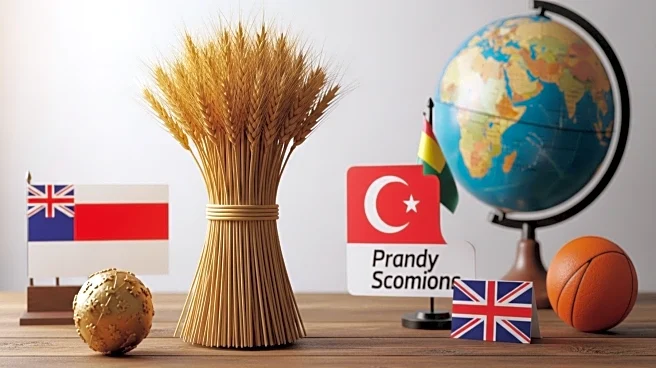What's Happening?
At a recent Farmfest event, American Farm Bureau Federation President Zippy Duvall emphasized the importance of including agriculture in any future U.S. trade agreements. Duvall, along with other agricultural leaders, expressed concerns over current tariffs and their impact on farmers. He conveyed these concerns to President Trump, who assured that future trade deals would aim to level the playing field for U.S. farmers. The event also featured discussions with United States Trade Representative Jamieson Greer, who confirmed that agriculture would be a significant component of any trade negotiations. The focus is on securing trade agreements with key partners like Canada, Mexico, and China to support the agricultural sector.
Why It's Important?
The inclusion of agriculture in trade deals is crucial for the U.S. economy, as the agricultural sector is a significant contributor to national GDP and employment. Ensuring that agriculture is prioritized in trade negotiations can help stabilize crop prices and provide new market opportunities for U.S. farmers. This is particularly important in the context of current trade tensions and tariffs, which have negatively impacted the agricultural industry. Successful trade agreements could lead to increased exports, benefiting farmers and the broader economy. The emphasis on agriculture also highlights the sector's strategic importance in U.S. trade policy.
What's Next?
The U.S. government is expected to continue negotiations with major trade partners to secure favorable terms for agricultural exports. This may involve addressing existing tariffs and exploring new markets for U.S. agricultural products. The outcome of these negotiations will be closely watched by stakeholders in the agricultural sector, who are seeking stability and growth opportunities. Additionally, there may be further discussions on government support for farmers affected by trade disruptions, ensuring that they can remain competitive in the global market.









